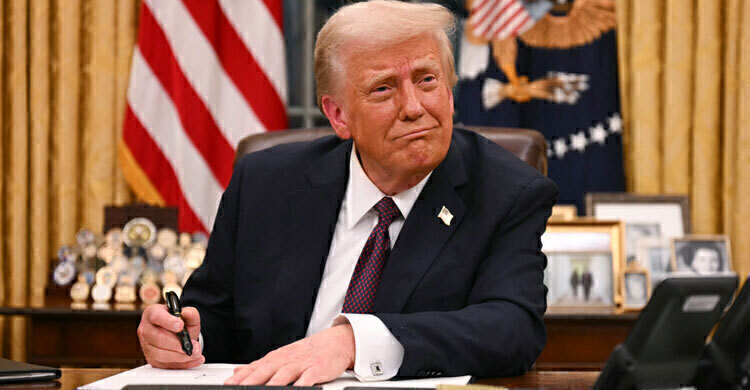Trump to decide on US role in two weeks: White House

US President Donald Trump will decide within the next two weeks whether the United States will engage militarily in the ongoing Israel-Iran conflict, White House Press Secretary Karoline Leavitt announced on Thursday, June 19,.
Quoting the president, Leavitt said, “Based on the fact that there’s a substantial chance of negotiations that may or may not take place with Iran in the near future, I will make my decision whether or not to go within the next two weeks.”
Leavitt emphasised that the US is closely monitoring the conflict, with Trump receiving regular intelligence briefings from his National Security Council and maintaining constant communication with Israeli Prime Minister Benjamin Netanyahu.
She iterated the administration’s stance that “Iran has never been closer to obtaining a nuclear weapon,” underscoring the urgency of the situation. The press secretary added that while Trump prefers diplomacy, he is “unafraid to use strength if necessary.”
War Powers Act and congressional pushback
As speculation grows about potential US military involvement, some lawmakers are invoking the War Powers Act of 1973 to assert Congress’s authority over military actions.
Passed during the Vietnam War, the act aims to limit the president’s ability to engage in military conflicts without congressional approval.
Lawmakers like Senator Tim Kaine and Representative Ro Khanna have introduced resolutions to ensure any US action against Iran requires explicit congressional authorisation, citing fears of being drawn into another Middle East conflict.
Trump’s two-week deadline: Strategy or ploy?
Al Jazeera’s senior analyst Marwan Bishara suggested Trump’s two-week timeline could be a strategic move.
“He could use that as a pretext to camouflage his intentions and attack tomorrow,” Bishara noted, pointing to Trump’s history of unpredictable decision-making, often signalled through social media. Alternatively, Bishara speculated that the deadline allows time for scheduled talks between European foreign ministers and their Iranian counterpart in Switzerland on Friday, June 20, potentially giving all parties a chance to “save face” through diplomacy.
Civilian toll and regional tensions
The Israel-Iran conflict, now in its seventh day, has escalated with mutual missile strikes and airstrikes targeting Iran’s nuclear facilities. Iranian-American analyst Negar Mortazavi described Israel’s attacks as a “war on the Iranian people,” noting that civilian casualties are mounting alongside military targets. “The ‘freedom’ bombs are also coming in people’s homes,” Mortazavi told Al Jazeera, highlighting the devastating impact on Iranian civilians.
Hezbollah, Iran’s ally, has remained on the sidelines but signaled potential involvement. In a statement, Hezbollah Secretary-General Naim Qassem condemned US threats, including Trump’s suggestion of assassinating Iran’s Supreme Leader Ayatollah Ali Khamenei, as an “aggression” against the region. Qassem said Hezbollah would act “as it sees appropriate” to counter “American-Israeli aggression,” despite the group’s weakened state following its 2024 conflict with Israel.
Diplomatic window amid rising stakes
Trump’s announcement has temporarily eased concerns about immediate US military action, opening a window for diplomacy.
European foreign ministers are set to meet Iran’s Foreign Minister Abbas Araghchi in Geneva on Friday to discuss de-escalation and Iran’s nuclear programme.
Leavitt confirmed ongoing correspondence between US and Iranian negotiators, though details remain undisclosed. The White House’s focus remains on preventing Iran from developing a nuclear weapon, with Leavitt stating that any deal must include “no enrichment of uranium.”
As the world awaits Trump’s decision, the conflict’s ripple effects continue to destabilize the region, with civilian lives and global security hanging in the balance.

